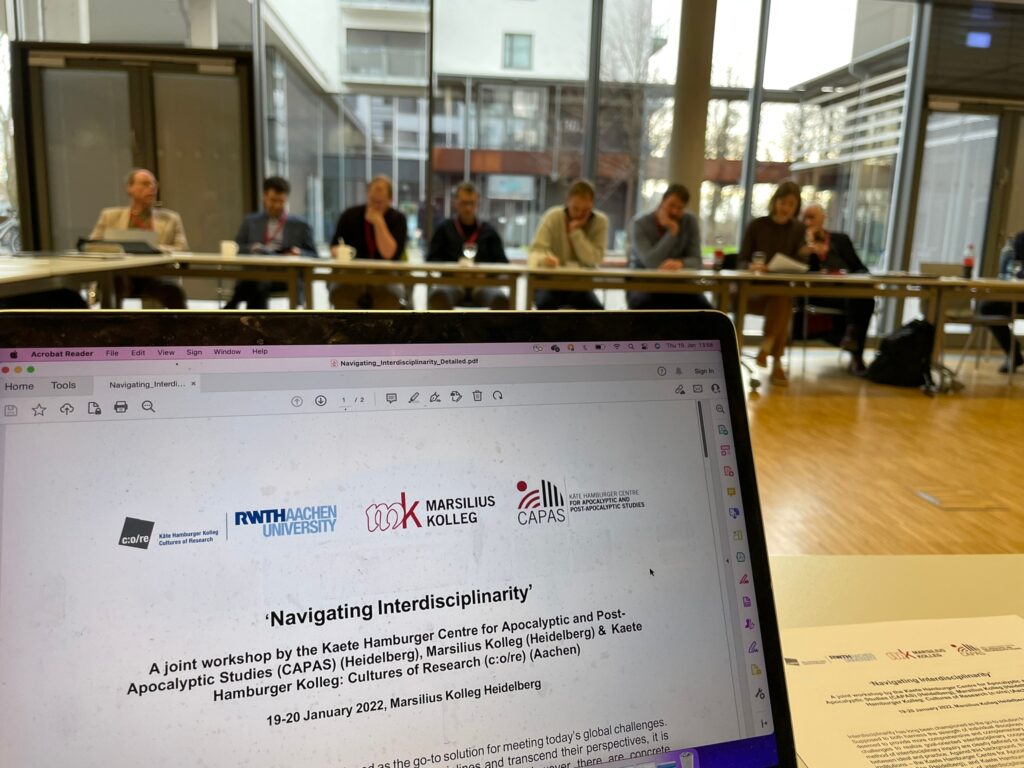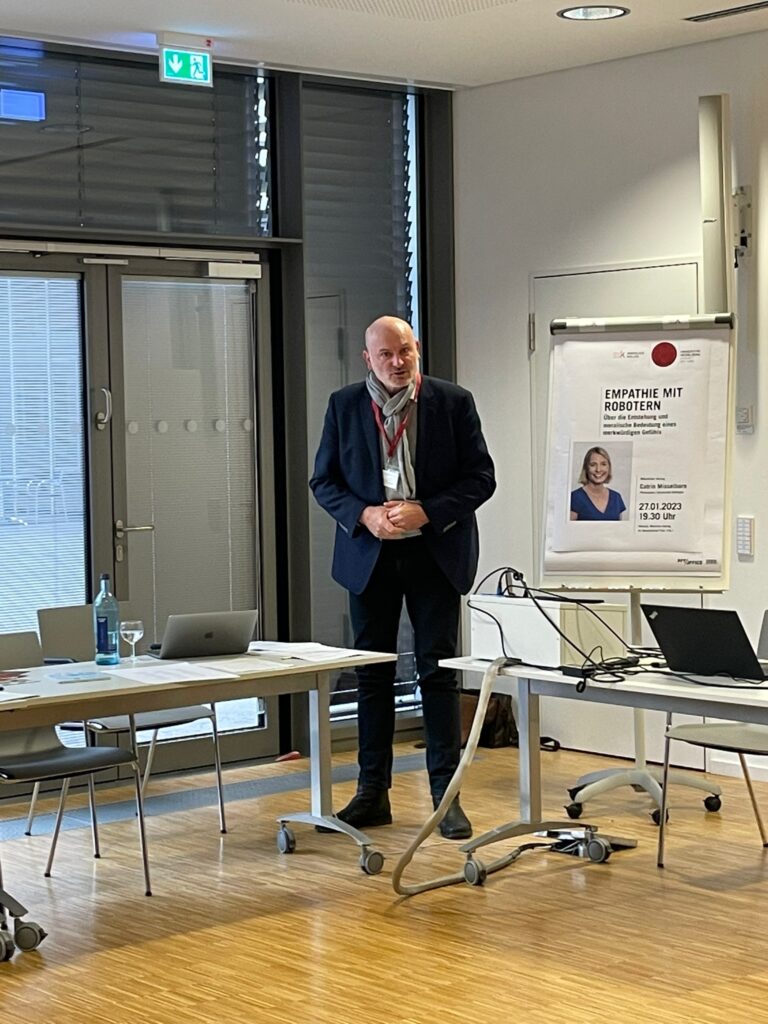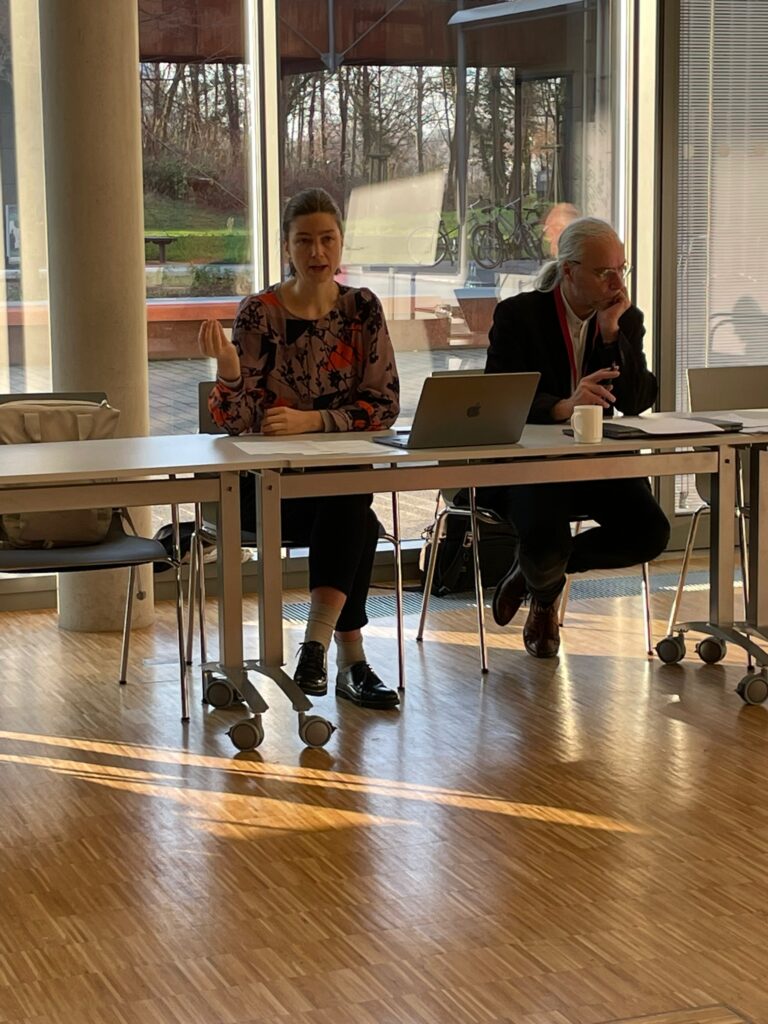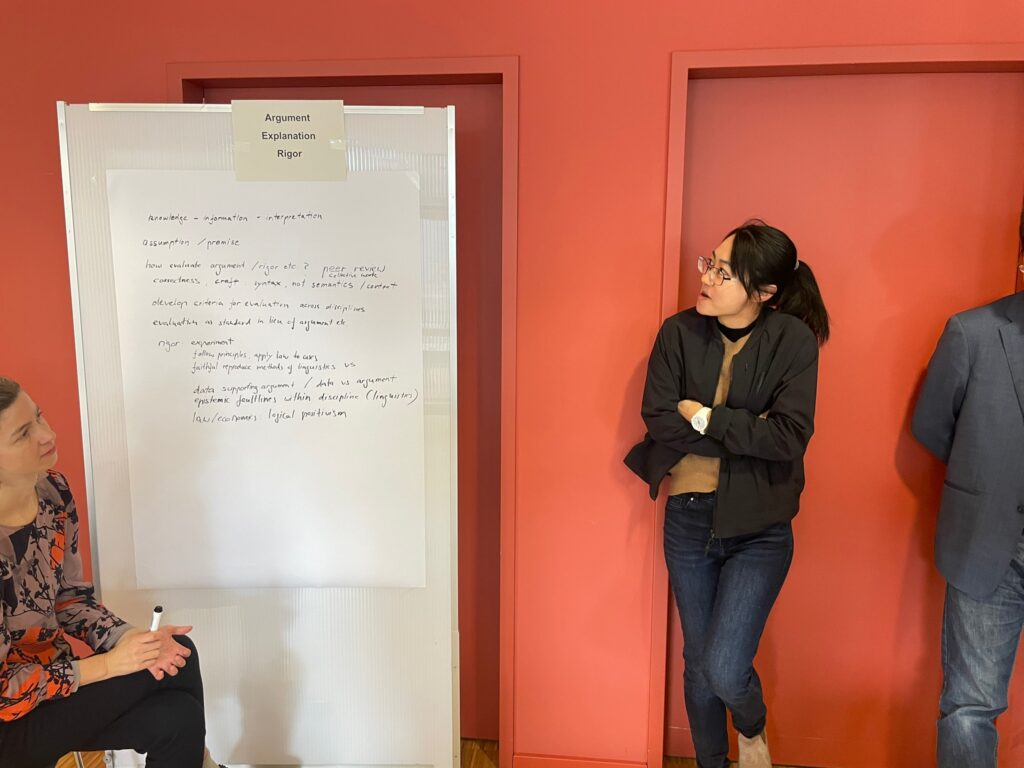Navigating Interdisciplinarity: between over-simplifying and over-complexifying

On January 19-20 the workshop Navigating Interdisciplinarity hosted at the Marsilius Kolleg Heidelberg and organized in collaboration with CAPAS and c:o/re took place. This event brought together interdisciplinary groups of researchers, mostly but not only from the humanities and social sciences, to discuss the complexity of challenges that academic interdisciplinarity poses.
The workshop took off with a discussion on metaphors of interdisciplinarity, the metaphors that may give insight for thinking on interdisciplinarity to researchers from various fields.
Guided through a format well-designed by the organizers, the participants reflected and conversed on the notions of complexity, security and collapse. The debates revolved around the question of whether these notions can be vehicles for inter- and/or trans-disciplinarity? In some of the debate groups in the workshop it appears that systems theory is a reoccurring theme as a possibly encompassing framework for interdisciplinarity. In this we see both possibilities to foster interdisciplinarity as well as a shared disciplinary bias.

Discussions on complexity also seem to draw on notions of models and modeling. The clarity and understanding that models may provide bear on complexity. The work of models is to simplify, so to make comprehensible complex matters. As such, an important consideration in modeling consists in the parameters within a model is rendered insightful to what it models. How much to simplify, how much complexity to retain?
To further ponder on (possibilities of) transfer between disciplines, the participants discussed, in groups, three triads of overarching concerns about knowledge production, namely: (1) Validity – Evidence – Justification; (2) Coherence – Narration – Causation; (3) Argument – Explanation – Rigor.
Security appears to be a difficult but nevertheless useful concept to employ as a notion to breach disciplinary boundaries. Discussions in this regard seem to offer epistemologically open approaches on research in terms of a trade-off between low risk & low gain and, respectively, high risk and high gain.

As a notion, collapse seems to stir interest for interdisciplinary perspectives. It is difficult to start work from the concept of collapse but we find ourselves in the situation of having to start from a collapsing context. Collapse, that is, things falling into each other may cause discomfort but while opening opportunities. It may produce insecurity and it tends to consist in a reduction of complexity.
We would like to thank our colleagues from Marsilius Kolleg Heidelberg and CAPAS for this interesting event and look forward to continuing the collaboration by organizing follow-up events as well as starting to draft papers on the themes discussed.



